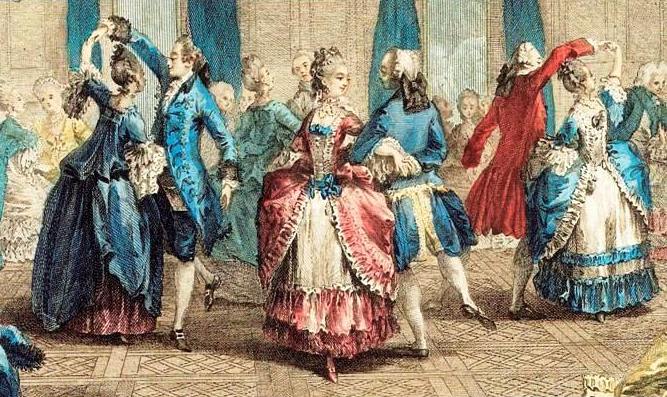For the last two years, the global Left has been mobilizing against national oppression. In Gaza, we are witnessing the horrific results when the imperialist powers and their local vassals attempt to deny the right to self-determination. Every people has a basic democratic right to live free of foreign domination.
Yet what is our goal as leftists? The world might seem like it is made up of a certain number of nations, with justice requiring that each nation has its own state. We do indeed fight for independent homelands for the Palestinians, the Kurds, the Sahrawis, etc.
Yet bourgeois society tends to project nations back into the ancient past, as if they were natural phenomena that have always existed and will always exist. The German bourgeoisie will talk about “Hermann the German” fighting against the Romans in AD 9, as if inhabitants of the Roman province of Germania had anything in common with Deutschland.
Products of the Capitalist Era
Nations are actually a product of the capitalist era, and their myths—like Hermann—were created in the 19th century. Before that, cultures tended to be local, with no media or schools working to ensure that the population of a given territory spoke the same language as its rulers. Nation states emerged at the end of the feudal era, when the new capitalist system required large markets. In Germany, for example, upwards of 300 principalities—each with their own borders and customs duties—were replaced with a single national market, allowing capitalist firms to expand enormously.
The formation of nation states, far from being natural, entailed extreme violence, wars, and ethnic cleansing. “Germany” might appear like a self-evident category today. But who decided that Bavaria would be a component part and Austria would not? This was a product of intrigues by emperors and diplomats, and not of popular will. A few coincidences could have turned Prussia into a separate nation with a separate culture from Germany, or Denmark into a German province with a strange dialect.
In 1913, Joseph Stalin attempted a Marxist definition of a nation:
A nation is a historically constituted, stable community of people, formed on the basis of a common language, territory, economic life, and psychological make-up manifested in a common culture.
(It might seem strange for me to quote Stalin, who is known as the head of a chauvinist bureaucracy in the Soviet Union that ruthlessly suppressed national self-determination. Yet before the First World War, he defended the Bolsheviks’ internationalist principles that he later betrayed. This pamphlet, ghostwritten by Nikolai Bukharin, is actually quite good.)
Stalin emphasized the historic character of nations: each “has its history, its beginning and end.”
Lenin and Self-Determination
More than any other socialist, Lenin stood for fusing the working-class struggle for socialism with the struggles of oppressed peoples against imperialism. Yet Lenin made no concessions to nationalist ideology:
Marxism cannot be reconciled with nationalism, be it even of the “most just”, “purest”, most refined and civilised brand. In place of all forms of nationalism Marxism advances internationalism, the amalgamation of all nations in the higher unity, a unity that is growing before our eyes…
Nation states represented progress when they were replacing feudal patchworks with large national communities with some sense of common purpose—yet these were always states led by the bourgeoisie, and thus always marked by some degree of expansionism, colonialism, and genocide. Creating a national community means excluding someone. As we see today, the German Staatsvolk is not simply given, but pruned with racist ideology and brutal deportations.
In any case, nation states have long outlived their usefulness: capitalism has distributed production around the globe, and dividing humanity along fairly arbitrary borders is a hindrance. 1914 represented the turning point, when the destructive side of nation states came to the fore. As Leon Trotsky wrote in 1934:
The national state with its borders, passports, monetary system, customs and the army for the protection of customs has become a frightful impediment to the economic and cultural development of humanity. The task of the proletariat is not the defence of the national state but its complete and final liquidation.
In place of nation states, socialists advocate a world socialist republic—which would only represent a transition toward a classless society with no need for a state of any kind, not even a democratic one.
More than Self-Determination
While we fight for self-determination of oppressed peoples, without any conditions, we need to embed that in a larger strategy for socialism. Our goal is a free Palestine—but would a Palestinian nation state, after the dismantling of Zionism, actually be free? Most people in the Middle East do not live under direct colonial occupation. But we see how bourgeois forces—the leaders of their respective nations—continue to exploit and oppress the people in the interest of imperialism.
As long as capitalism exists, formally independent nation states will remain under imperialist and neocolonial dominance. No amount of “international law” will overcome this fundamental inequality. So a free, bourgeois Palestine would still be oppressive for most Palestinians.
True freedom, true self-determination, means that workers, peasants, and poor people must be able to determine their own destiny. This requires not only kicking out imperialism and its vassals, but also toppling the “national” bourgeoisie—the rulers of the nation. Once the working class is in power in any country, workers have no interest in sealing off “national” cultures against the workers of other territories.
In place of narrow nationalisms, socialism will see global collaboration of working people, so that culture becomes infinitely more free and varied, and is not tied to any particular border. When we say “Free Palestine,” our goal is this kind of universal human liberation.
Red Flag is a weekly opinion column on Berlin politics that Nathaniel has been writing since 2020. After moving through different homes, it now appears at The Left Berlin.




